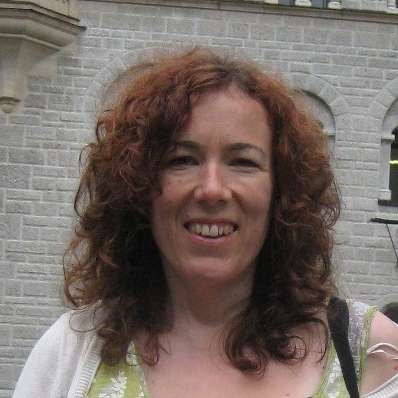Handel’s Messiah is a challenge to any conductor, particularly in the English-speaking world. It’s probably the best-loved piece in the classical repertoire, guaranteed to bring people out in great crowds. You can’t mess with Messiah, but at the same time, there’s a danger of sinking into tired tradition. The solution Matthew Halls took last night with Northern Sinfonia orchestra and chorus was to focus on details, giving the piece some new sparkle in unexpected places.
This sort of attention to detail is only possible with a choir as well-drilled and disciplined as Northern Sinfonia Chorus. Halls built in some exciting dynamic changes that added to the excitement of some of the more joyous choruses: the long semiquaver runs at the beginning of “For unto us a child is born” were hushed and excited before the choir exploded onto the fanfares of “Wonderful, Counsellor, the Mighty God”. The men of the choir added extra excitement in “He trusted in God” by spitting out the second syllable of the word “delight” with terrifying menace.
The fast choruses were immaculate throughout, every semiquaver perfectly placed, although this choir’s ability often tempts conductors into pushing things too far, as Halls did with “Let us break their bonds asunder”, which sounded gabbled. The parts that stood out, though, were some of the quieter movements: the sharp, jagged lines of Handel’s melody in “And with his stripes we are healed” were smoothed out by some impressive legato singing, bringing across true relief for sins forgiven; and the first chorus of Part Two, which introduces Christ’s suffering (“Behold the lamb of God”) was surprisingly tender, full of pity, rather than sung in its usual declamatory style.
The same tenderness came out in some of the solos too, beginning with tenor Thomas Hobbs’ very moving “Comfort ye my people”, a performance that was full of compassion and expressiveness. I also enjoyed his “Thou shalt break them in pieces”, which was beautifully fluid. As the aria that immediately precedes the Hallelujah Chorus this is a tough moment for the soloist, who must hold the audience’s attention when they’re all waiting for the excitement that follows, and Hobbs carried it off with style.
Northern Sinfonia put together a well-matched and impressive quartet of soloists, who caught the spirit of the performance in varying degrees. Joanne Lunn’s light soprano was particularly effective in her more florid arias, “Rejoice greatly” was infectiously cheerful, and she threw herself heart and soul into the performance, with expansive hand gestures. She and Halls (and the staff of The Sage Gateshead) also deserve credit for their cool heads when an audience member was taken ill during the great soprano aria “I know that my Redeemer liveth”. Lunn and Halls stopped at a cadence, standing frozen, as if someone had pressed a pause button, and when things had settled down, they calmly resumed as if nothing had happened. Bass Matthew Brook was rich and heavy; his recitative “For behold, darkness shall cover the earth” was tense and spooky, followed by a well-rounded tone and smoothness of line in “The people that walked in darkness”.
Countertenor Christopher Ainslie sounded lovely, with a delightfully smooth tone, particularly in the higher register, and never sounded shrill, and he added some imaginative ornamentation. Unlike the other soloists though, his arias were completely cold and emotionless, to the extent that he sounded bored, and during the fast passages of “But who may abide” the orchestra’s valiant attempts at injecting some passion into the performance simply drowned him.
The orchestra were sensitive to Halls’ nuances throughout, and I enjoyed their dramatic interjections in some of the solos, and the sensitivity of the continuo players to what the soloists were doing, which gave some of the recitatives a sense of freshness and spontaneity. Halls went for a particularly heavy bass sound, and it was lovely to hear Handel’s wonderful cello lines given such prominence. Particular mention in any Messiah orchestra must go to the trumpets: Richard Martin and Marion Craig sounded crisp and bright, lifting the whole performance up a notch. It was a pity that Halls cut the da capo of “The trumpet shall sound” because I was thoroughly enjoying Richard Martin’s solo. It’s not unusual to omit a few movements of Messiah to make a more manageable length for the concert, and as so often, the lovely little chorus “Their sound is gone out” was a victim of the cuts this evening, although “Lift up your heads” was a more surprising omission.
The slow build up of the final Amen, from another uncharacteristically gentle beginning to a powerful ending brought this Messiah to a glorious close, helped by a particularly flamboyant timpani flourish on the final chord. This was a big, confident Messiah, one that was firmly traditional, but that remained interesting and exciting.


